Ben Whishaw on highlighting mental health in new film Good Boy: ‘Therapy is great – I found it incredibly helpful’
Exclusive: "I hope this film helps someone," says Ben of his Oscar-qualifying short about love, loss and human connection
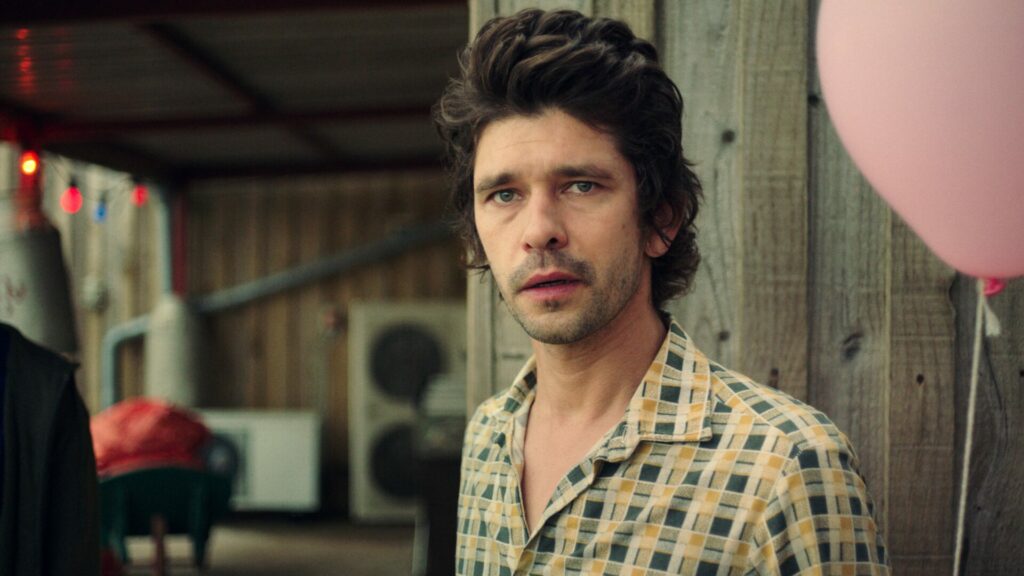
He’s best known for blockbusters like Paddington and No Time To Die. But critically-acclaimed actor Ben Whishaw is switching gears for his latest project: surreal short film Good Boy, which packs an outsized punch with a mere 15-minute running time.
Unpacking themes of isolation and mental health through surreal storytelling and wacky humour, the film follows a day in the life of the haphazard and melancholic Danny, played by Ben, after an unsuccessful attempt to rob a bank.
The Crown‘s Marion Bailey plays Ben’s sweetly chaotic on-screen mum, while Foundation‘s Dino Fetscher pops up as a handsome stranger who might just turn the bereaved Danny’s life around.
“Well, he’s rather gorgeous, isn’t he?” Ben told Attitude when asked how he built chemistry with the star during the shoot. “So, no acting required there really.” Asked if he can better his love interest’s genuinely memorable chat-up line – “fancy some gnocchi?” – Ben said: “It’s really quite good isn’t it? Especially delivered in a Welsh accent. Everything I can think of is too filthy to be printed here.”
As for whether he’d be up for a full-length version of the Oscar-qualifying short, the 43-year-old replied: “Oh God, definitely. I can’t think of anything lovelier than roaming around Somerset in a camper van with Marion Bailey and [director] Tom Stuart for six weeks. It would just be heavenly.”
Here, Ben – whose screen credits include Passages and Women Talking, and whose other new film Bad Behaviour comes to UK cinemas from 5 January – talks his awards hopes for Good Boy, his journey with therapy and his secret to compellingly attractive messy hair.
Hi Ben. How did you get involved in Good Boy, and how do you know the director, Tom Stuart?
I have known Tom since we were in our mid-20s, so nearly 20 years now. He got in touch with me during the pandemic and we had a walk along the Thames – a socially distanced walk – and we talked about life and everything that was happening, and Tom had recently lost his mum, so obviously we discussed that too, and work, and our hopes for the future… Then maybe six months later, Tom sent me the script of the film. I immediately loved it and said that I would love to be in it
What appealed to you about the story and role?
I love that the film is just very full of Tom. It’s full of his spirit in that it is very sensitive, but very funny, very down to earth – and quirky, sweet, and kind.
How long did it take to make?
The film took four days to make in April this year on Worthy Farm in Pilton, Somerset, home of Glastonbury Festival.
How did it compare making a film with a director you knew personally, as opposed to a director and team who are otherwise strangers?
It’s wonderful to work with a friend because you begin the whole process with less fear than normal – it can also have its challenges, of course – although I have to say working with Tom was just absolutely blissful.
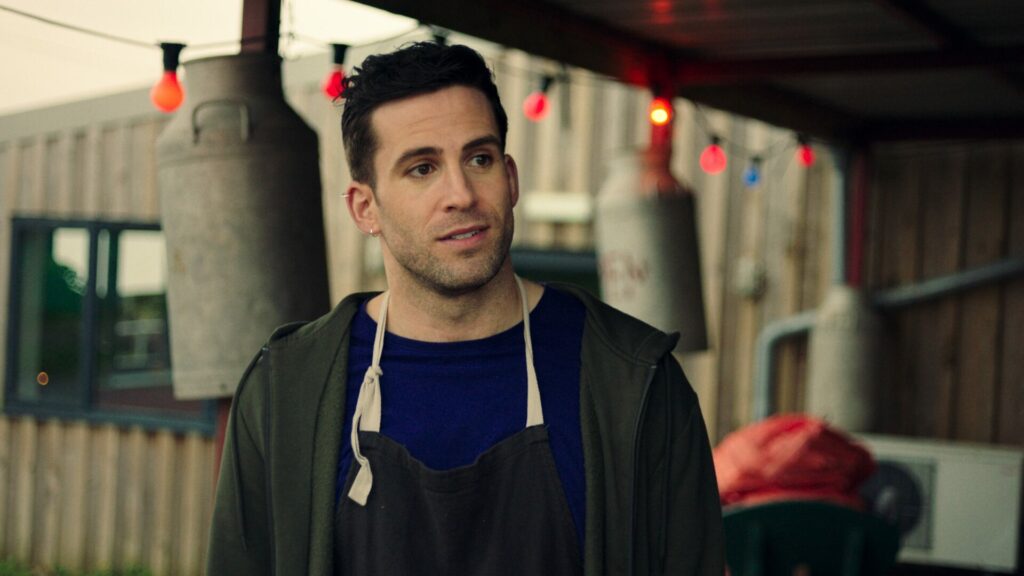
How do you, personally, interpret the film’s ending?
I think the ending is to do with how we live with people who are gone – and how we learn to live with the reality that they’re not here any longer – and the fact that they can feel so present even when they’re absent is the thing that Danny is struggling with throughout the film.
The film follows a mother and son experiencing poverty. Have you noticed that mainstream cinematic filmmaking is biased in favour of representing the wealthy, and was it refreshing to work against that?
Yes, I think this is typical of Tom in that everything he does is very grounded in reality, just day-to-day, down to earth reality, not a kind of peculiar film-reality – just how people actually live – simply and unpretentiously but also with their struggles. And I think he depicts this kind of life with great affection, tenderness.
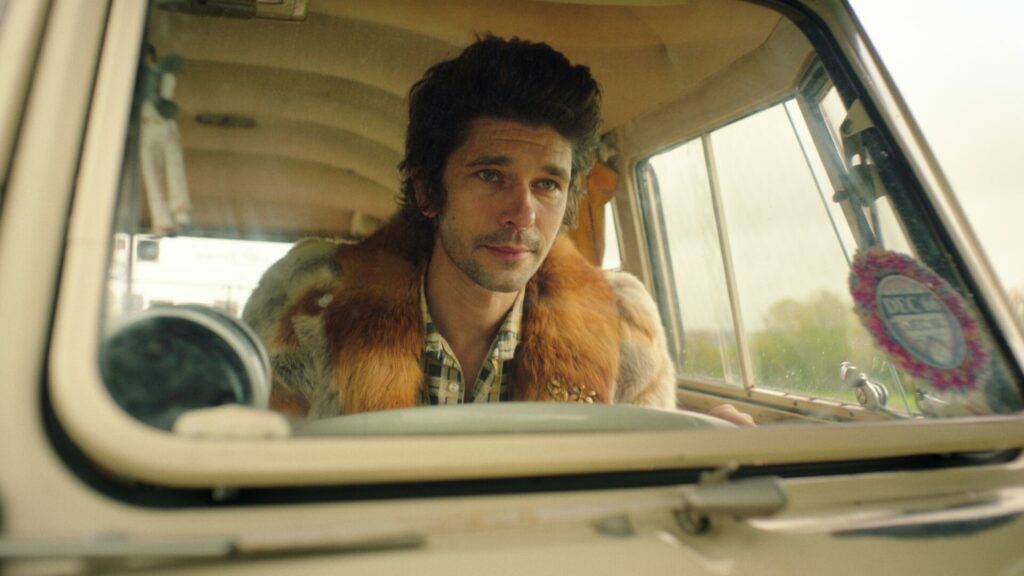
Has your own mother seen the film, and what was her response?
My mum has not seen the film, no, but I’m certain she’ll really love it.
I’ve heard many LGBTQ people say their prejudiced parents and families came around through the power of film. Do you hope Good Boy mends a few relationships?
I hope this film helps someone, yes. Although I tend not to really like things that are trying too hard to do something to an audience. I prefer things that allow an audience to choose for themselves how they wish to feel or think. This film is gentle and kind and gives the audience space.
Has Good Boy changed how you think and talk about grief, bereavement, and times of struggle? Has there ever been a time when you could relate to what Danny is going through?
I don’t know. I guess it makes me think that everyone’s experience of grief is very particular to them, very specific to them. Tom talked about how he would sort of be ambushed by feelings at unexpected moments. Or how unrelated things would trigger memories, followed by waves of grief. I think he called it the grief ninja – that wasn’t something I’d heard of before.
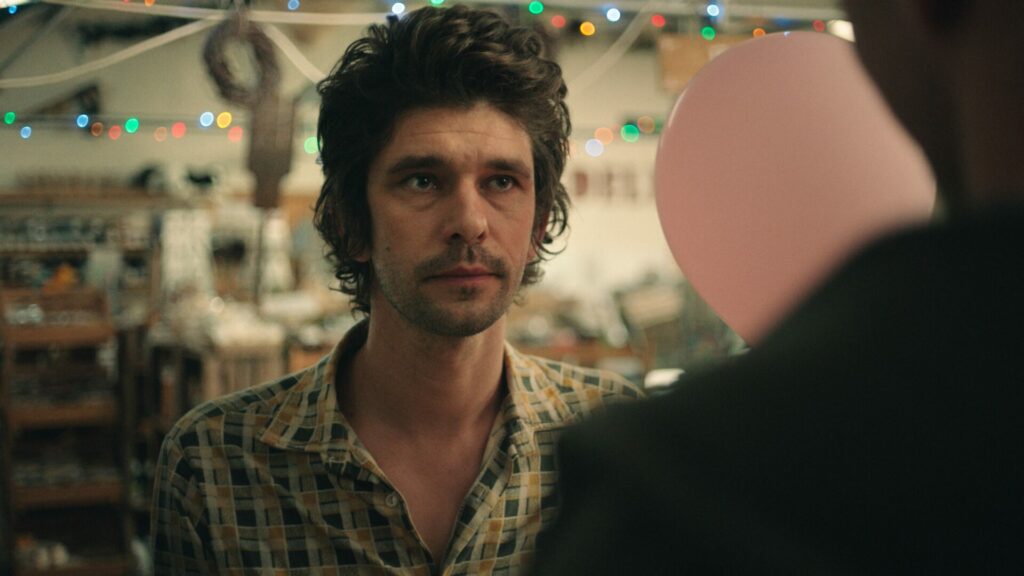
Danny is clearly isolated and lonely, as are a lot of LGBTQ and otherwise marginalised people. Has this role, and your role in This Is Going to Hurt, informed your observations about LGBTQ health inequalities?
It does make you think about these things. Inequality of any kind totally sucks. I don’t think Danny sees himself as a victim though. I think he is aware of the part he’s played in his own difficult circumstances. And I think he’s trying to turn the struggles of his life into strength.
You spoke five years ago of your experience of therapy, and how it helped you overcome a hatred of being gay. Could you elaborate on your experience of therapy since, for the benefit of anyone reading who might be in a similar position to Danny?
I think therapy is great. I’ve only gone through two phases of therapy, but it was incredibly helpful to me both times – and then I think it leaves you with some useful ways to structure your thinking and your relationship with yourself and other people. I think everyone should try it. I wish it were more readily available.
Good Boy is BAFTA and Oscar-qualifying. What would it mean to you and the Good Boy team to get such recognition, and what might the effect be?
It would be wonderful, especially for Tom, and I hope it would open up more opportunities for him, because I think he has enormous gifts.
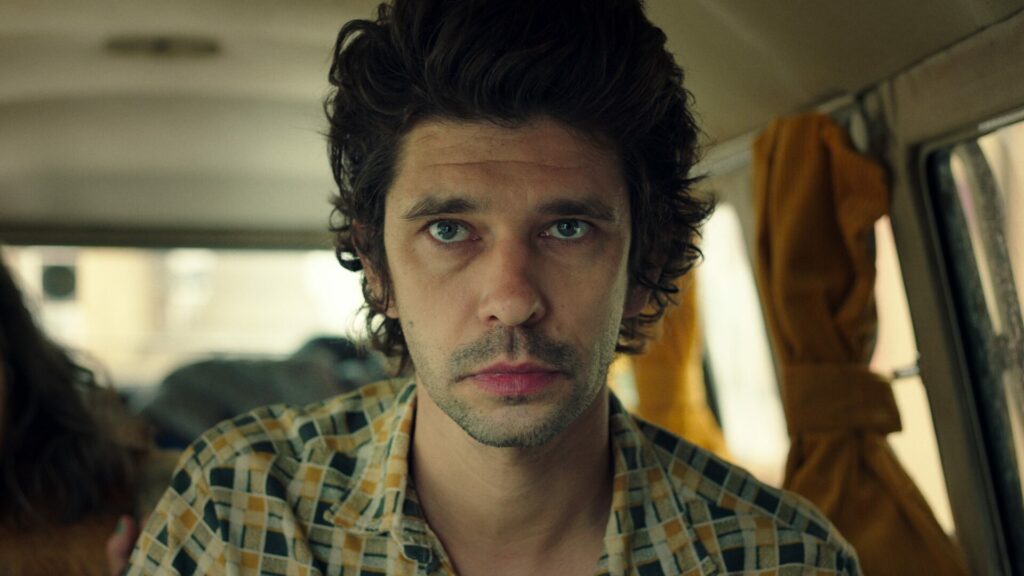
According to IMDB, you have four projects out this year, and your filmography is endless. How do you find the time to put out so much?
I did actually take a chunk of time off this year, which was really needed and really replenished my energy, but I love to work. I love to make things with people. And life is short. I think we just have to get on with it.
What is your dream role?
Right now, I’m feeling I would love a role that was completely transformative so no-one would recognise me, but that somehow also depicted a part of my inner life! I don’t really know what I mean by that, but I’m open to any offers however wacky, wonky and unexpected.
What’s your secret to artfully unruly hair? Do you have a certain product you use?
No, no particular product. Although I don’t wash it that often – I tend to just leave it as long as possible and let it do its own thing.
For more information, visit GoodBoyshort.com.
